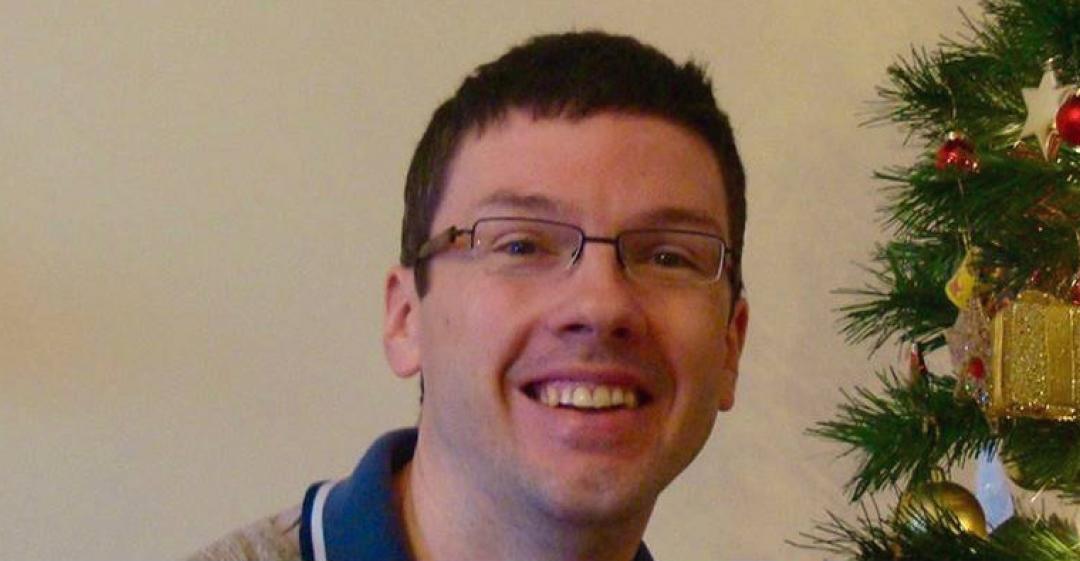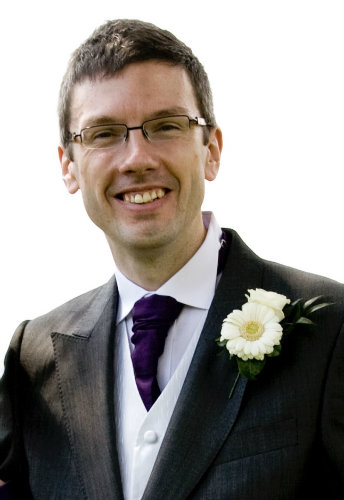“The more money I earned, the less happy I felt.”

What work were you doing previously?
I was a Planning Manager in the chilled food industry.
I ran a department that made sure all the packaging and ingredients were available for the production schedules and quantities that we determined. It was the same objective every day, make sure that the customers got all their product orders on time at the depots. It regularly involved 50-hour plus working weeks, going back into work in the evenings, extra weekends, and Christmas.
What are you doing now?
I have a place on a teacher training course for this September to learn how to teach Computer Science at secondary level.
Why did you change?
Even though I was doing relatively well in my career, it didn't feel satisfying.
In fact, the more money I earned, the less happy I felt.
When was the moment you decided to make the change?
I was working for a company that I almost instantly regretted going to work for and sadly my mother unexpectedly passed away about five months after joining.
I knuckled down and put up with the job for another nine months, but then I knew I had to change something. My mother saved and saved for retirement and died at 61. I couldn't help but feel she she'd somehow 'missed out' on what she'd been waiting for.
I decided I wouldn't do the same.
Are you happy with the change?
It's actually taken around six years to make the whole transition and an incredible amount of work.
Am I happy that I'm weeks away from achieving the goal I've worked so hard for? You bet!
I've found it's given me a new lease of life. I'm fascinated by my subject, and I feel energised again rather than facing a trudge towards retirement.
What do you miss and what don't you miss?
I've worked in the past with some great people who I try and keep in touch with.
I miss them a lot more than the job.
I don't miss the ridiculous working hours that were expected of me.
How did you go about making the shift?
Even though I have a first degree in Business from many years ago, I had to start another degree, this time with the Open University, in Computing and IT.
At first, I was fortunate that I could afford some time off but later I had to work and study at the same time, which was very challenging. I didn't know exactly what I would do with the degree; I just planned to make a change.
It wasn't until I was halfway through that I paid attention to the fact there was a change in the schools curriculum (less ICT, more Computer Science) and as I progressed through the course I also saw that the government were giving bigger and bigger bursaries for computing graduates.
I volunteered in a school for a few weeks and realised it was enjoyable being in a classroom. I enjoyed talking about a subject that I was learning about, and I began to appreciate how much enjoyment I was getting from doing this.
I finally finished my degree in October 2015 and had to await my award in December. I'd already applied for a teacher training place in October on the premise that I should get at least a 2:1. In December I was notified that I'd narrowly missed a 1st and had achieved the 2:1 that was going to get me a place on the course.
I was elated; it still puts a smile on my face to think about it now!
What didn't go well? What 'wrong turns' did you take?
Working and studying is extremely stressful at times.
I felt under constant time pressure and would get up early in the morning to go to work and work later in the evening on a complex assignment or, in particular, my dissertation.
I should have planned my 'free time' better. I didn't do enough 'fun' things with the family and that would have helped me cope better and relax.
How did you handle your finances to make your change possible?
I was helped by family and had to borrow to pay fees.
It is a burden but I realised that having enough money to get by was what was important. The constant chase for more money was actually making me unhappy. I will pay back what I owe over time but the happiness that will come from doing and talking about something that fascinates me is worth the cost.
What was the most difficult thing about changing?
The cost.
I started studying the year before the fees rose dramatically and my degree 'only' cost £6,500.
I feel sorry for those students that have to pay the fees now. Everything else I could give: I was motivated, I gave it my time, I had a family that supported me and wanted me to succeed.
What help did you get? 
The Open University are great.
There are lots of people there that want you to succeed and understand that it's difficult doing a part-time course at a distance. They are so good (and I have found a new passion for learning) that I have continued to study with them at postgraduate level.
What have you learnt in the process?
That I have the determination to do anything I want.
All I need is the goal and I can work towards it. I love learning and I hope to keep on studying. I'm glad that I'm joining a profession that encourages further study!
What resources would you recommend to others?
The Open University has plenty of free resources and course material to help you see how you might enjoy studying again.
What do you wish you'd done differently?
I wish I had started the change sooner (I waited until my late 30s to start).
And I wish my mum had been able to see me get a good degree this time round; she would have been chuffed.
What would you advise others to do in the same situation?
Don't wait.
Even if you think it will take a long time (it has taken me nearly six years to get the degree and apply for training), if you set out a plan and keep setting yourself milestones to achieve, you can do it.
It is worth it. If I could bottle how I feel, you would want to buy it. Trust me.
What lessons could you take from Christopher's story to use in your own career change? Let us know in the comments below.



